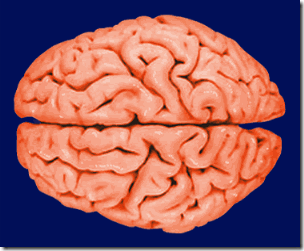Archive for the ‘Neuroplasticity’ tag
15 Ways To Get a New Habit To Stick Forever
Ed. note: It seems like a rite of passage to post about habit forming on a personal growth blog. But the primary reason I’m posting this is because I feel I have something to add to the conversation, not just because I have Leo envy! Hopefully you pickup a trick or two from this post.
 Forming new habits is hard. But it’s absolutely possible for everyone due to the plasticity of the brain and the core of human nature. If we are what we repeatedly do, then it serves to reason that our habits are somehow a part of us. What we focus on from minute to minute and day to day has a large part to do with who we are – and more importantly who we want to be.
Forming new habits is hard. But it’s absolutely possible for everyone due to the plasticity of the brain and the core of human nature. If we are what we repeatedly do, then it serves to reason that our habits are somehow a part of us. What we focus on from minute to minute and day to day has a large part to do with who we are – and more importantly who we want to be.
It’s not uncommon to see people with ambitious goals and aspirations who haven’t formed any of the required habits to achieve them. For 23 hours and 59 minutes each day they’re mired in bad habits, struggling to understand why it is they just can’t get motivated or can’t make progress. The 1 minute each day they spend thinking about and focusing on their goals can’t help overcome the inertia of their habits.
Habits are the single most important ingredient to achieving real focus and real growth.
Social psychologists have been studying the process of habit forming for quite some time. In the late 1970s, researchers James Prochaska and Carlo DiClemente came up with a model to help frame the various “Stages of Change”. While this model was formed out of a desire to cure smoker’s addiction, it’s useful to help identify which stage someone is in with respect to one or more of their habits, good or bad. People are often unwilling or resistant to change during early stages, but eventually become more proactive and committed to forming or replacing habits.
Neuroplasticity: Your Brain’s Amazing Ability to Form New Habits
 One of the most popular areas of research in psychology these days is neuroplasticity. Neuroplasticity refers to the brain’s ability to restructure itself after training or practice. In many ways, neuroplasticity is what makes personal growth and development possible at its most basic level. With the understanding that change is indeed possible, you’re able to focus on the ways in which you’d like to grow instead of whether or not it’s achievable for you. It’s possible, it’s proven, and now it’s up to you!
One of the most popular areas of research in psychology these days is neuroplasticity. Neuroplasticity refers to the brain’s ability to restructure itself after training or practice. In many ways, neuroplasticity is what makes personal growth and development possible at its most basic level. With the understanding that change is indeed possible, you’re able to focus on the ways in which you’d like to grow instead of whether or not it’s achievable for you. It’s possible, it’s proven, and now it’s up to you!
We are what we repeatedly do. Excellence, then, is not an act, but a habit. – Aristotle
An example of how neuroplasticity works: when you view the brains of people who frequently practice playing the violin under fMRI (functional MRI) they appear to have developed a larger area of their brain devoted to mapping their fingers. This change is directly related to the quantity and the quality of the practice they’re performing – their brains are adapting in very real and tangible ways unbeknownst to them.
One of the fun sayings around neuroplasticity: “neurons that fire together wire together… and neurons that fire apart wire apart.”. Effectively this means that when neurons activate at the same time as a response to an event, the neurons become associated with one another and the connections become stronger. This is why people talk about “neural pathways being set” with respect to increased practice – the more practice you accumulate, the more ingrained or grooved the pathways become. Of course the inverse happens as well: if those pathways aren’t utilized, the space will be used by other pathways needing room to grow. Use it or lose it!



